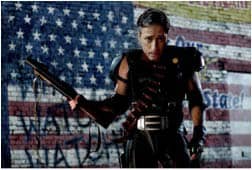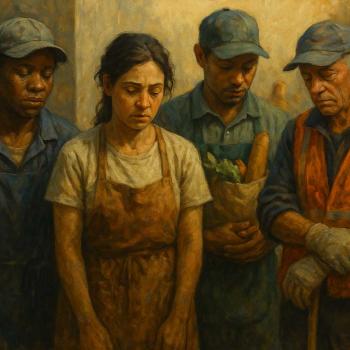The pronunciation of his name was not the only thing to go awry that first night at the Bitter End. Stewart made it only half-way through his act. "Legend has it that Jon bombed," says Wendy Wall, who had booked him at the club. "But I really wouldn't say he ‘bombed.' It was one in the morning. It's not easy with a crowd like that. It was obvious to me that he was funny." Wall invited him back for a second night.
After becoming a regular at New York's Comedy Cellar, he broke into television with an uncredited TV writing gig onCaroline's Comedy Houron the A&E network and in 1992 landed a spot as the host of MTV'sYou Wrote It, You Watch It. Along the way he picked up a powerful fan, David Letterman, and became a frequent guest on Letterman's Late Night on NBC, often sporting a tough-guy leather jacket. When Letterman decamped to CBS, Stewart was a contender to replace him as Late Night host but lost out to Conan O'Brien. Still, MTV liked him, and in 1993 tapped him to host his own talk show,The Jon Stewart Show, which quickly became the second-highest rated program on the network. The show lasted two seasons.
Stewart's career slowly rolled on. He starred in Jon Stewart: Unleavened for HBO in 1996 and went on to score what are generally considered to have been mediocre guest-star appearances on sitcoms including Newsradio, Spin City, and The Nanny, as well as roles in big-screen comedies like Adam Sandler's Big Daddy. He was more successful playing "himself" -- a young comic who is brought in to replace an older mentor -- on the pseudo-realistic The Larry Sanders Show. In one episode, Stewart flouts the censors and airs a skit featuring a character dressed up as Hitler. The inspiration came from a rehearsal sketch for Stewart's earlier talk show, in which Hitler tries to soften his image. "I don't know what I was afraid of. These are delicious!" comedian Dave Attell's Hitler proclaims after biting into a bagel.
Stewart's studio audience had booed and the skit was shelved, but it later turned into a hilarious bit of back-story and the basis for an essay, "Adolf Hitler: The Larry King Interview," in Stewart's 1998 book, Naked Pictures of Famous People. In it, the former fuhrer accepts the blame for his past actions and psychoanalyzes why his plan for world domination failed. "What do I do? I deport or kill all my best scientists . . . The Jews were some of my best technical people. It's classic fear of success," "Hitler" reasons.
By 1998, Stewart had done standup. He'd done movies. He'd done TV. He'd published a best-selling book. He'd had -- and lost -- a show. But he had never really found his niche until, at age 37, he replaced Kilborn onThe Daily Show in 1999. After a slightly bumpy beginning, Stewart began to lead the show away from its celebrity focus. He came into his own with the show's arch and sardonic coverage of the presidential election grandiosely labeled "Indecision 2000."
 The show quickly drew the eyeballs of political junkies and earned a Peabody award, one of broadcast media's highest honors. "It was in the year 2000 that Jon Stewart officially became a public intellectual," says Robert Thompson, who directs the Bleier Center for Television and Popular Culture at Syracuse University.
The show quickly drew the eyeballs of political junkies and earned a Peabody award, one of broadcast media's highest honors. "It was in the year 2000 that Jon Stewart officially became a public intellectual," says Robert Thompson, who directs the Bleier Center for Television and Popular Culture at Syracuse University.
Then came September 11, 2001. When Stewart came back on the air nine days later, he opened with a somber, halting speech that addressed the sudden absurdity of his jester role as well as its importance. "They said to get back to work, and there were no jobs available for a man in the fetal position," he said. "We sit in the back and we throw spitballs -- never forgetting the fact that it is a luxury in this country that allows us to do that." Stewart choked up, tears in his eyes, and turned to the significance of carrying on:
The view from my apartment was the World Trade Center. Now it's gone. They attacked it. This symbol of American ingenuity and strength and labor and imagination and commerce and it is gone. But you know what the view is now? The Statue of Liberty. The view from the south of Manhattan is now the Statue of Liberty. You can't beat that.
It was a long way from the Bitter End. It was, actually, a beginning: the unwitting kickoff of Jon Stewart as trusted national figure. With the wars in Afghanistan and Iraq, the show became a place where viewers came not just to laugh but to be informed. The guest list grew weightier, expanding to include the Iranian-American religious scholar Reza Aslan, the late David Halberstam, and newsmen Bill Moyers and Ted Koppel. "When all the news guys were walking on eggshells, Jon was hammering those questions about WMDs," recalls Thompson. "That's the kind of thing CNN and CBS should have been doing."




